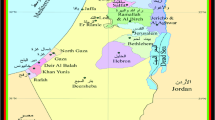Abstract
This study focused on the waste separation behavior of households in areas with a waste separation at source (WSS) program to understand the effect of the program and identify suggestions for improving the participation rate. A questionnaire survey was conducted through face-to-face interviews with 402 households in Da Nang City, Vietnam. To measure the effect of the WSS program on waste separation behavior, the authors conducted a comparison between waste separation behavior before and after implementing the program. The authors developed a model of waste separation behavior to clarify the factors. The differences in participation rates and influencing factors as they related to respondents’ level of involvement in the WSS program were also examined by Chi-squared test and ANOVA. The participation rate before the WSS program was 70.0% for plastic bottles, 70.1% for cardboard, and 71.4% for aluminum cans. After the WSS program, these rates significantly increased by 14.2% for plastic bottles, 12.6% for cardboard, and 12.3% for aluminum cans. Through behavior modeling, the factors influencing waste separation behavior were clarified. The attendance of respondents at an explanatory meeting and the recognition of the leaflets would positively promote the participation rate and the factors influencing waste separation behavior.


Similar content being viewed by others
References
Ajzen I (1991) The theory of planned behavior. Organ Behav Hum Decis Proces 50:179–211
Bernstad A (2014) Household food waste separation behavior and the importance of convenience. Waste Manag 34:1317–1323
Boldero J (1995) The prediction of household recycling of newspapers: the role of attitudes, intentions, and situational factors. J Appl Soc Psychol 25(5):440–462. https://doi.org/10.1111/j.1559-1816.1995.tb01598.x
Chu P, Chiu J (2003) Factors influencing household waste recycling behavior: test of an integrated model. J Appl Soc Psychol 33(3):604–626
Da Nang People’s Committee (2008) Decision No.41/2008/QD-UBND on approving the Project of an Environment City (in Vietnamese). https://thuvienphapluat.vn/van-ban/Bo-may-hanh-chinh/Quyet-dinh-so-41-2008-QD-UBND-de-an-xay-dung-Da-Nang-thanh-pho-moi-truong-194143.aspx. Accessed 15 July 2019
Da Nang People’s Committee (2019) Decision No.1577/QD-UBND on implementation plan of waste separation at source in Da Nang City up to 2025 (in Vietnamese). https://thuvienphapluat.vn/van-ban/Tai-nguyen-Moi-truong/Quyet-dinh-1577-QD-UBND-2019-Ke-hoach-trien-khai-phan-loai-chat-thai-ran-sinh-hoat-Da-Nang-412525.aspx. Accessed 9 August 2019
Dai YC, Gordon MPR, Ye JY, Xu DY, Lin ZY, Robinson NKL, Woodard R, Harder MK (2015) Why doorstepping can increase household waste recycling. Resour Conserv Recycl 102:9–19
Field AP (2009) Discovering statistics using SPSS, 3rd edn. Sage, London
Hirose Y (1995) Social psychology for environment and consumption. Nagoya University Press, Nagoya
Indrianti N (2016) Community-based solid waste bank model for sustainable education. Procedia Soc Behav Sci 224:158–166
Kattoua MG, Al-Khatib IA, Kontogianni S (2019) Barriers on the propagation of household solid waste recycling practices in developing countries: state of palestine example. J Mater Cycles Waste Manage. https://doi.org/10.1007/s10163-019-00833-5
Matsui Y, Ohsako M, Tanaka M (2001) A study on waste separation behavior and its structural model (in Japanese). J Jpn Soc Civil Eng VII 692(21):73–81
Matsui Y, Tanaka M, Ohsako M (2007) Study of the effect of political measures on the citizen participation rate in recycling and on the environmental load reduction. Waste Manag 27:S9–S20
Mongkolnchaiarunya J (2005) Promoting a community-based solid-waste management initiative in local government: Yala municipality Thailand. Habitat Int 29(1):27–40. https://doi.org/10.1016/s0197-3975(03)00060-2
Nguyen TTP, Zhu D, Le NP (2015) Factors influencing waste separation intention of residential household in a developing country: Evidence from Hanoi Vietnam. Habitat Int 48:169–176
People’s Committee of Hai Chau District, Da Nang city (2017) The implementation of waste separation at source. https://haichau.danang.gov.vn/chi-tiet-tin-tuc?dinhdanh=45001&cat=0. Accessed 02 August 2019
Stoeva K, Alriksson S (2017) Influence of recycling programmes on waste separation behavior. Waste Manag 68:732–741
Taniguchi Y, Yoshida M (2011) Public involvement and mobilization for promoting 3R initiative in Hanoi City: lessons from 3R Initiative Project in Hanoi City 2006–2009. In: proceedings of the 8th Expert Meeting on Solid Waste Management in Asia and Pacific Islands (SWAPI), pp 57–64, Tokyo, 21–23 February, 2011. https://scholar.google.com/scholar?q=Public%20involvement%20and%20mobilization%20for%20promoting%203R%20initiative%20in%20Hanoi%20City:%20lessons%20from%203R%20initiative%20project%20in%20Hanoi%20City%202006-2009
The Prime Minister of Vietnam (2018) Decision No.491/QD−TTg on Approving Adjustments to National Strategy for General Management of Solid Waste to 2025 with the vision towards 2050 (in Vietnamese). https://thuvienphapluat.vn/van-ban/Tai-nguyen-Moi-truong/Decision-491-QD-TTg-approving-adjustments-to-national-strategy-for-general-management-solid-waste-387109.aspx. Accessed 15 July 2019
Tonglet M, Phillips PS, Read AD (2004) Using the theory of planned Behaviour to investigate the determinants of recycling behaviour: a case study from Brixworth, UK. Resour Conserv Recycl 41(3):191–214. https://doi.org/10.1016/j.resconrec.2003.11.001
Tran VCM (2017) A study on household solid waste characteristic and recycling behavior modeling: a case study in Da Nang city, Vietnam. Master’s thesis, Okayama University, Japan
Tran VCM, Le HS, Matsui Y (2019) Current status and behavior modeling on household solid waste separation: a case study in Da Nang city, Vietnam. J Mater Cycles Waste Manag 21:1462–1476. https://doi.org/10.1007/s10163-019-00899-1
Ulhasanah N, Goto N (2018) Assessment of citizens’ environmental behavior toward municipal solid waste management for a better and appropriate system in Indonesia: a case study of Padang city. J Mater Cycles Waste Manag 20:1257–1272
Vietnam Government (2007) Decree No.59/2007/ND-CP on Management of Solid Waste. https://vanbanphapluat.co/decree-of-government-no-59-2007-nd-cp-of-april-09-2007-on-solid-waste-management. Accessed 15 July 2019
Vietnam Government (2014) Law on Environmental Protection (in Vietnamese). https://thuvienphapluat.vn/van-ban/Tai-nguyen-Moi-truong/Luat-bao-ve-moi-truong-2014-238636.aspx. Accessed 15 July 2019
Vietnam Government (2015) Decree No.38/2015/ND−CP on Management of Wastes and Discarded Materials. https://vanbanphapluat.co/decree-no-38-2015-nd-cp-on-management-of-waste-and-discarded-materials. Accessed 15 July 2019
Wijayanti DR, Suryani S (2015) Waste bank as community-based environmental governance: a lesson learned from surabaya. Procedia Soc Behav Sci 184:171–179
Zurbrugg C, Caniato M, Vaccari M (2014) How assessment methods can support solid waste management in developing countries—a critical review. Sustainability 6:545–570. https://doi.org/10.3390/su6020545
Author information
Authors and Affiliations
Corresponding author
Additional information
Publisher's Note
Springer Nature remains neutral with regard to jurisdictional claims in published maps and institutional affiliations.
Rights and permissions
About this article
Cite this article
Tran, V.C.M., Le, H.S. & Matsui, Y. Measuring the effect of a program of waste separation at source in Da Nang City, Vietnam. J Mater Cycles Waste Manag 22, 816–825 (2020). https://doi.org/10.1007/s10163-020-00975-x
Received:
Accepted:
Published:
Issue Date:
DOI: https://doi.org/10.1007/s10163-020-00975-x




